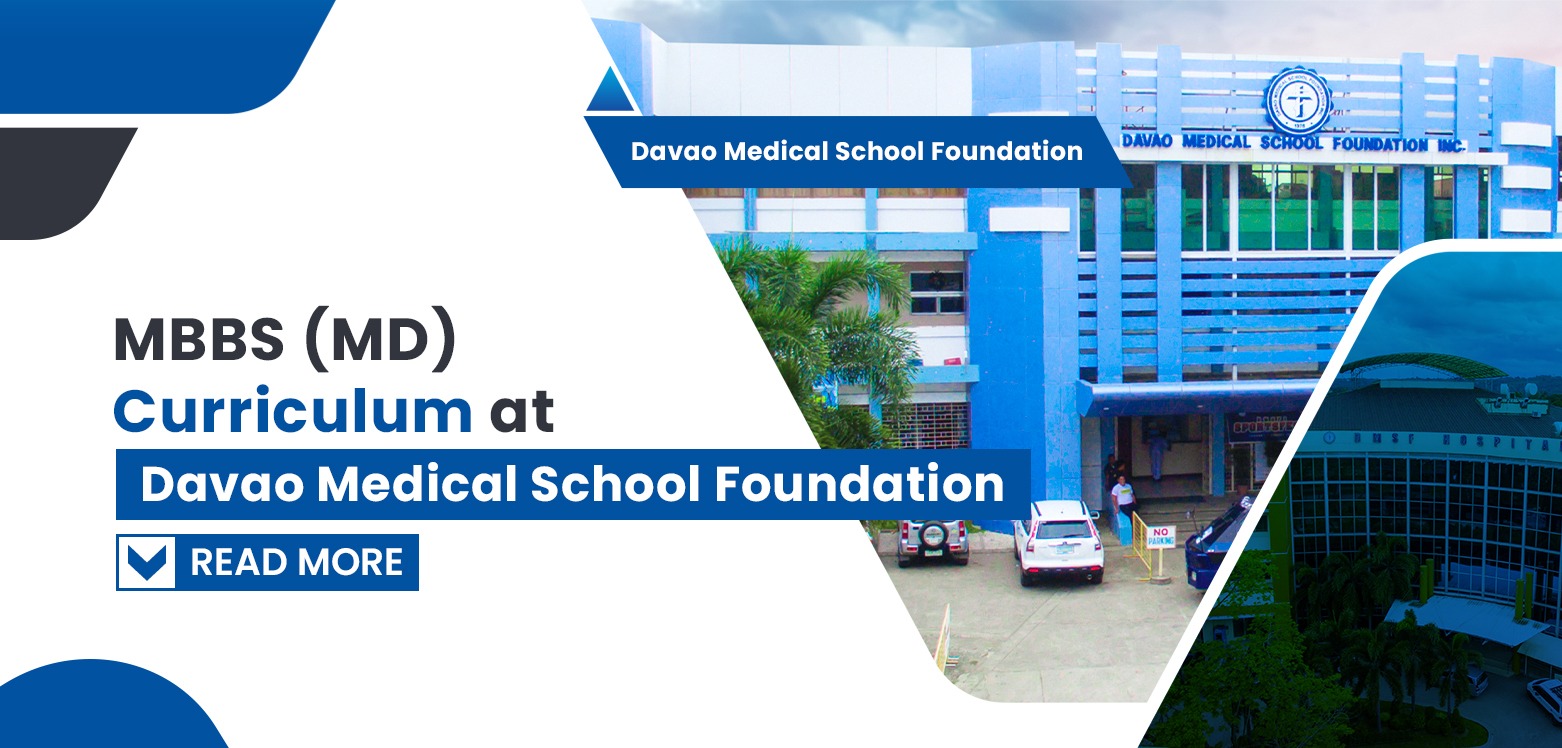
MBBS (MD) Curriculum at Davao Medical School Foundation
Davao Medical School Foundation, founded in 1976, has consistently been a highly preferred institution for students seeking to pursue an MBBS degree in the Philippines. It is recognized by the NMC (National Medical Commission) and various international certification councils. With its impressive ranking as one of the top four medical colleges in the country, Davao Medical School Foundation has attracted a diverse student body, including native, Indian, and other foreign students, over the past 47 years. The institution has a remarkable track record of producing exceptional doctors and healthcare professionals who excel globally. As a result, Davao Medical School Foundation stands out as one of the best medical colleges in the Philippines for Indian students. The total duration of the course for Indian students, according to NMC guidelines, is 6 ½ years, including one year of internship in the Philippines, consisting of a Pre-Med Course, 4 ½ years of MD studies, and the internship.
Curriculum for the 4 ½ years of MD
The basic medical education program of Davao Medical School Foundation takes four years to complete, which will be expanded to four and one-half years for international students of Indian nationality effective AY 2022–23, like we mentioned earlier. The additional six months will be located at the end of the regular twelve-month clerkship rotation.
Each academic year is divided into two semesters of at least eighteen weeks each, exclusive of registration and comprehensive examinations. The core contents of the Doctor of Medicine program are presented through organ systems integration with case-based discussions, starting with the basic principles and theories of medicine that are taught in the first and second years, followed by clinical courses that begin early in the second semester of the second year and expand throughout the succeeding years.
It is expected that at the end of the four-and-a-half-year program, the student will be able to demonstrate the following learning outcomes: clinical skills, diagnostic and therapeutic skills, patient investigation, patient management, health promotion, and disease prevention, communication skills, medical informatics, application of basic, social, and clinical sciences and underlying principles, appropriate attitudes, ethical understanding and legal responsibilities, decision making skills, clinical reasoning and judgement, the role of the doctor within the health service, and personal development.
It is also required that foreign students build their own personal library, which is why it is mandatory that each student have a personal copy of the required textbooks from first year to fourth year, including the required manuals and workbooks. For submitted requirements such as thesis, research, and the like, they become the property of the school, though they may later claim certificates of completion, submission, and participation in their submitted outputs.
